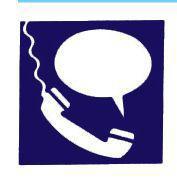SAS Urban Survival Handbook (90 page)
Read SAS Urban Survival Handbook Online
Authors: John Wiseman
Tags: #Health & Fitness, #Reference, #Survival, #Fiction, #Safety, #Self-Help, #Personal & Practical Guides, #General, #Survival Skills
REMEMBER
If you’re alone, give the impression you have company. When the doorbell rings shout something like : ‘Don’t worry Tony. I’ll go’, ‘Take the dog into the kitchen please, Mick’. Even during a conversation with someone at the door, especially if you want to get rid of them, you could call out, ‘Hold on, Johnny, I’ll be there in a minute’.

WARNING
If you live alone, DON’T advertise the fact on a label beside your doorbell or ‘entryphone’. Add a fictitious name. Women who live alone should NEVER put Miss, Mrs or Ms in front of their names at the door OR in telephone directories. Doing so has been known to attract problems. If you use initials, not a first name, no one knows whether you are male or female.
KEYS
 Your keys – the most obvious means of entry to your home – are YOUR responsibility. You must keep them safe at all times.
Your keys – the most obvious means of entry to your home – are YOUR responsibility. You must keep them safe at all times.
NEVER put an address tag on your keys. Always have themready immediately when you reach the door. When you move into a new home – you have no idea how many people may have keys. Be prepared to change locks:
- ■
If you lose your keys/your keys are stolen - ■
If you give copies to tradesmen to allow them access. When their job is finished, you don’t want them ‘visiting’ you again - ■
If the locks are old and worn - ■
If you feel you can upgrade the locks. Mortise locks should have at least five levers. Rim locks should have a deadlock facility on the inside
REMEMBER
Many rim locks have a replaceable internal barrel containing the lock mechanism. This makes changing the locks fairly easy. Keep the old lock mechanism. After a couple of years you may need to change locks again – you could reuse the old mechanism. The levers in some mechanisms can be rearranged and new keys cut to fit.

WARNING
NEVER keep spare keys hidden outside your home. You may be seen retrieving the key. Most ‘professional’ burglars or attackers are quite capable of imagining the same hiding places.
At night
Lock all accessible doors and windows. Close all curtains, especially when undressing or if you have possessions you don’t wish to advertise to everyone who passes by.
If you hear anything which suggests that someone is trying to gain access to your property—or anyone else’s, DON’T investigate. Call the police.
TELEPHONE NUISANCE
 An ex-directory telephone number is a good idea. DON’T be intimidated by random telephone threats or obscene calls. Your rising fear or panic
An ex-directory telephone number is a good idea. DON’T be intimidated by random telephone threats or obscene calls. Your rising fear or panic
may be precisely what the caller wishes to hear.
- ◑ Keep a loud whistle by the phone. It could give a nuisance caller quite a surprise!

WARNING
Refuse to be intimidated by telephone calls which only make silly obscene statements. They are unlikely to be followed up. If actual physical violence is threatened, call the police – especially if the caller seems to know who you are, where you work or routes you take walking to and from your house.
- ◑
NEVER
give your complete telephone number when answering the phone. Some ‘telephone attackers’ dial randomly until they find a victim. If any caller claims they have dialled a wrong number and asks you to tell them what number they have reached,
REFUSE. - ◑ Say instead: ‘What number did you dial?’
- ◑
DON’T
be drawn into a silly conversation which may degenerate further. - ◑ Hang up the telephone.
- ◑ Unplugging the telephone (in Britain, at least) means the caller hears a ringing tone and thinks no one is in.
- ◑ If you have more than one call, hang up
IMMEDIATELY
once you realize what is happening. - ◑ If you suffer from persistent calls, tell the police. It is possible for ALL your calls to be monitored by the telephone company, allowing only genuine calls to come through.
- ◑ Special devices are being developed which may be fitted between the telephone and the wall socket to identify a caller’s number.
- ◑ You may hear sounds in the background which indicate where the call is coming from. This could help the police.
- ◑ Change your telephone number.
- ◑ Do NOT leave the phone ‘off the hook’. This can cause problems with the telephone exchange.
- ◑ You could arrange a signal for friends to let you know they are ringing. They could let the phone ring a certain number of times, hang up and ring again.
- ◑ Remove the number label from your telephone to avoid it being seen by anyone who calls at your house and has to be admitted.
REMEMBER
Many telephone answering machines can also be used to monitor calls.
After your pre-recorded message has been played it is possible to hear the caller. When you recognize the caller’s voice you can pick up the phone – or not. The choice is up to you.
INTRUDERS
Apart from the possibility of people entering your home at night, always remember that thieves or attackers may get in while you are out. They may not be lying in wait, you might simply catch a thief in the act. When returning home ALWAYS check that lights are on or off as expected, windows, curtains and doors are as you left them.
- ■
If you do disturb a thief, DON’T block his exit path. You may get hurt in the process. Which is more important – your possessions or your life? - ■
Phone the police immediately once the intruder leaves. If alone, go to a neighbour’s house – the intruder may return - ■
Try to make a quick mental note of the intruder’s appearance and any ‘getaway’ vehicle - ■
If they attempt to physically harm you, use whatever means you can to protect yourself
REMEMBER
Consider installing panic buttons as part of an alarm system. Hand-held screech alarms (see On the streets) may also be useful indoors. If you live alone, a simple doorbell could be wired to a friendly neighbour’s house to act as an alarm. A powerful flashlight might dazzle an intruder and could serve as a club for self-defence.
ON THE STREETS
 Most advice given applies especially to people who must be out on their own—although a small group of people may be threatened or set upon. Attacks are most common on individuals. Most unforeseeable attacks take place:
Most advice given applies especially to people who must be out on their own—although a small group of people may be threatened or set upon. Attacks are most common on individuals. Most unforeseeable attacks take place:
- ◑ During the summer, usually between the mid-evening and early morning
- ◑ Away from other people, in lonely ‘short cuts’
- ◑ From behind
- ◑ When pubs or nightclubs have recently closed
- ◑ On payday—when wage packets might be carried
Living in a city
In most large cities there has been a great decline in people’s respect and consideration for one another. Many areas may feel like battle zones to those who don’t live there. But even in ordinary day-to-day dealings, people may be very aggressive and self-centred. Many people live with some level of constant fear of attack or intimidation. Stories of gangs, street crime, vandalism and rape abound and feed these fears.
To add fear to the other stresses people may be forced to live with may make life intolerable. It is essential to replace fear with an increased awareness or preparedness. DON’T take a passive stance.
TAKE POSITIVE ACTION!
Keep yourself fit. Be sensible about moving about on your own. Use your imagination to learn how you might cope in various attack scenarios. Try to learn some basic self-defence techniques and—most important—enjoy your life! Cities have lots to offer all types of people. DON’T let fear make you paranoid and overshadow all your activities.